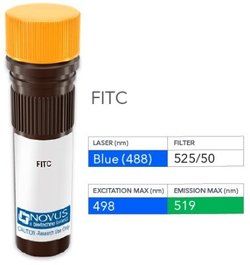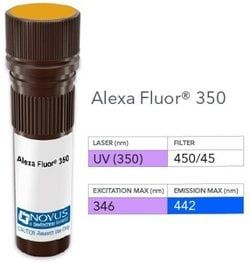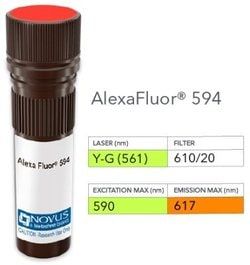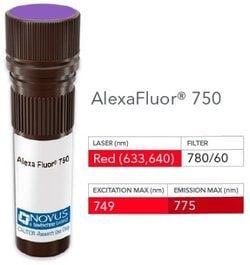TGF-alpha Antibody (P/T1), FITC, Novus Biologicals™
Manufacturer: Novus Biologicals
Select a Size
| Pack Size | SKU | Availability | Price |
|---|---|---|---|
| Each of 1 | NB006370-Each-of-1 | In Stock | ₹ 57,494.00 |
NB006370 - Each of 1
In Stock
Quantity
1
Base Price: ₹ 57,494.00
GST (18%): ₹ 10,348.92
Total Price: ₹ 67,842.92
Antigen
TGF-alpha
Classification
Monoclonal
Conjugate
FITC
Formulation
PBS with 0.05% Sodium Azide
Gene Symbols
TGFA
Immunogen
A 10-amino acid synthetic peptide (aa34-43; PPVAAAVVSH) from human TGF-alpha (Uniprot: P01135)
Quantity
0.1 mL
Research Discipline
Angiogenesis, Cell Cycle and Replication, Signal Transduction
Test Specificity
This antibody reacts with the TGF alpha and shows no cross-reaction with EGF and the neuropeptide synenkephalin. The staining with this monoclonal antibody is completely blocked by the peptide used for raising this antibody. TGF (aa50) is a growth factor with 33% homology to EGF, binds to EGFR, activates tyrosine phosphorylation of the receptor, and stimulates cell proliferation. It plays a role in tumor initiation by inducing the reversible transformed phenotype.
Content And Storage
Store at 4°C in the dark.
Applications
Flow Cytometry, ELISA, Immunohistochemistry, Immunocytochemistry, Immunofluorescence, Immunohistochemistry (Paraffin)
Clone
P/T1
Dilution
Flow Cytometry, ELISA, Immunohistochemistry, Immunocytochemistry/Immunofluorescence, Immunohistochemistry-Paraffin, Immunohistochemistry-Frozen
Gene Alias
protransforming growth factor alpha, TFGA, transforming growth factor, alpha, transforming growth factor-alpha
Host Species
Mouse
Purification Method
Protein A or G purified
Regulatory Status
RUO
Primary or Secondary
Primary
Target Species
Human, Rabbit, Zebrafish
Isotype
IgG1 κ
Related Products
Description
- TGF-alpha Monoclonal specifically detects TGF-alpha in Human, Rabbit, Zebrafish samples
- It is validated for Flow Cytometry, Immunohistochemistry, Immunocytochemistry/Immunofluorescence, Immunohistochemistry-Paraffin.




